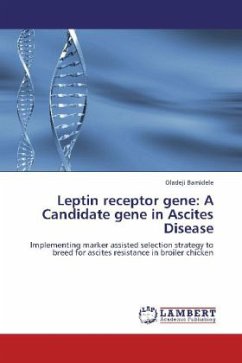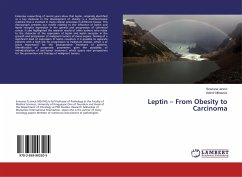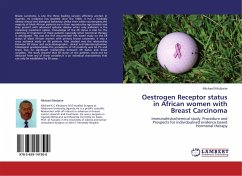Ascites or Pulmonary Hypertension syndrome is the accumulation of fluid in the abdominal cavity due to a number of events affecting the heart, lungs and liver which are prompted by an excessively high blood pressure in the pulmonary circulation. In order to curb this disease the broiler industry is exploring the use of genetic markers in breeding ascites resistant chickens. Previous studies have identified the presence of quantitative trait loci (QTL) controlling ascites susceptibility in broilers on four different chromosomes. The Leptin gene has been implicated in the regulation of body weight and maintenance of arterial blood pressure. But these functions can only be achieved via its receptor: the Leptin Receptor Gene (LEPR) which is found in one of the 4 QTL regions. Thus, LEPR is a candidate gene in understanding the development of ascites. The objective of this study was to identify genetic variations in the LEPR that could be associated with the ascites-related traits considered.
Bitte wählen Sie Ihr Anliegen aus.
Rechnungen
Retourenschein anfordern
Bestellstatus
Storno








